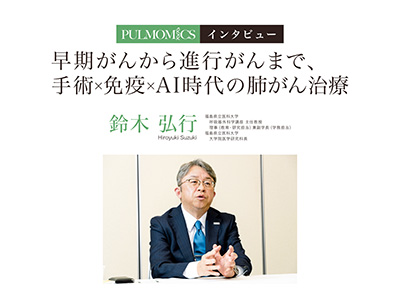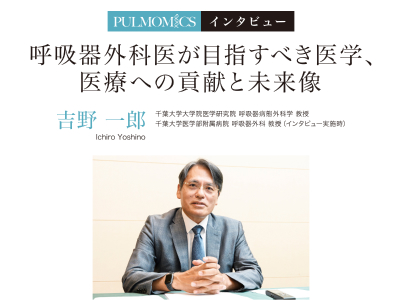- ニュース
- 添付文書
- D-VRd療法が移植適応・非適応の初回多発性骨髄腫の新たな治療選択肢へ
- 製薬会社のヤンセンファーマは多発性骨髄腫について、D-VRd療法が未治療の...
- 読了時間:約1分58秒
2025年08月14日 AM10:00
- 自閉スペクトラム症児、睡眠の質は認知スキルと感覚特性に関連-金沢大
- 金沢大学は、自閉スペクトラム症の子どもは認知機能の発達段階によって睡眠の質...
- 読了時間:約2分24秒
2025年08月14日 AM09:30
- サービス付き高齢者向け住宅への入居で高齢者の健康・幸福感向上の可能性-千葉大
- 千葉大学は、サービス付き高齢者向け住宅(以下、サ高住)への入居は、高齢者の...
- 読了時間:約2分47秒
2025年08月14日 AM09:20
- PM2.5、日本の「労働供給量」低下に影響-広島大ほか
- 読了時間:約3分59秒
2025年08月14日 AM09:10
- 糖尿病患者の腎疾患進行・死亡リスク、eGFRdiffで予測可能-順大ほか
- 読了時間:約2分42秒
2025年08月14日 AM09:00
- 楽観的な人は類似の認知構造で明るい未来を描く、脳fMRIで解明-神戸大ほか
- 読了時間:約3分50秒
2025年08月13日 AM09:30
- 肺がん細胞多様性の治療抵抗機構解明、新たな治療標的発見-科学大ほか
- 読了時間:約4分27秒
2025年08月13日 AM09:20
QLifePro医療ニュース 特集
- 早期がんから進行がんまで、 手術×免疫×AI時代の肺がん治療
- いま、免疫チェックポイント阻害薬(ICI)の効果予測にもとづく、がん免疫療...
- 2023年07月27日 AM11:00
- 呼吸器外科医が目指すべき医学、 医療への貢献と未来像
- これは呼吸器外科医のみならず全ての医師に関わってくることですが、2024年...
- 2023年05月23日 PM06:18
- 臨床に活きる・活かす基礎研究 〜ドライバー変異のその先へ
- 私は自治医科大学の卒業で、9年間の義務年限を出身地の青森で勤めました。「研...
- 2023年03月13日 PM04:00



